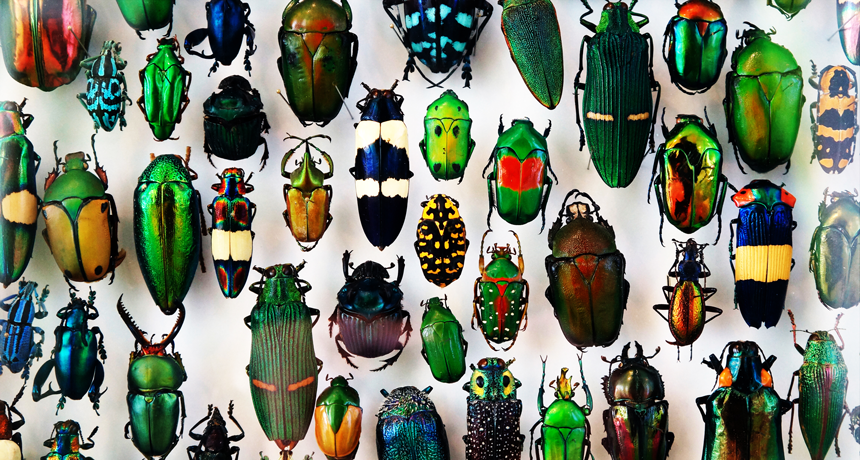bacteria (singular: bacterium) Single-celled organisms. These dwell nearly everywhere on Earth, from the bottom of the sea to inside other living organisms (such as plants and animals). Bacteria are one of the three domains of life on Earth.
breed (noun) Animals within the same species that are so genetically similar that they produce reliable and characteristic traits. German shepherds and dachshunds, for instance, are examples of dog breeds. (verb) To produce offspring through reproduction.
diversity (in biology) A range of different life forms.
ecosystem A group of interacting living organisms — including microorganisms, plants and animals — and their physical environment within a particular climate. Examples include tropical reefs, rainforests, alpine meadows and polar tundra. The term can also be applied to elements that make up some an artificial environment, such as a company, classroom or the internet.
extinct An adjective that describes a species for which there are no living members.
extinction The permanent loss of a species, family or larger group of organisms.
genetic Having to do with chromosomes, DNA and the genes contained within DNA. The field of science dealing with these biological instructions is known as genetics. People who work in this field are geneticists.
habitat The area or natural environment in which an animal or plant normally lives, such as a desert, coral reef or freshwater lake. A habitat can be home to thousands of different species.
hybrid An organism produced by interbreeding of two animals or plants of different species or of genetically distinct populations within a species. Such offspring often possess genes passed on by each parent, yielding a combination of traits not known in previous generations. The term is also used in reference to any object that is a mix of two or more things.
organism Any living thing, from elephants and plants to bacteria and other types of single-celled life.
species A group of organisms that share many genetic and physical traits, and that are more closely related to each other than to any other group. For instance, among some animals, this might be individuals that can mate and produce viable offspring. Naming something as a species helps give different people a consistent way of talking about the same group of living organisms. This is true for scientists, for people making laws or for anyone who wants to understand the relatedness of organisms.
sterile An adjective that means devoid of life — or at least of germs. (in biology) An organism that is physically unable to reproduce.
trait A characteristic feature of something. (in genetics) A quality or characteristic that can be inherited.

